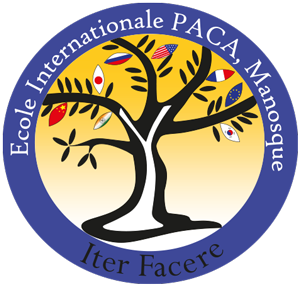The European Baccalaureate
The secondary school course is validated by the European Baccalaureate examinations at the end of the seventh year. The certificate awarded is fully recognised in all the countries of the European Union, as well as in a number of others. The Examining Board, which oversees the examinations in all language sections, is chaired by a university professor and is composed of examiners from each country of the Union. They are appointed annually by the Board of Governors and must meet the requirements laid down in their home countries for appointment to examining boards of the same level. There are more than 25,000 students in the European Schools system, which sees more than 1500 students taking the final examination each year.
The Baccalaureate written exams take place in early June, and the oral exams take place at the beginning of July.
Written Exams
Candidates take five written exams:
Language 1 English /Advanced Language 1 English
Language 2 French / Advanced Language 2 French
Mathematics (3 or 5 periods)
4-period option
4-period option
Oral exams
Candidates take three oral exams:
1. L1 English/ L1 English Advanced
2. Choice of
a. L2 French or Advanced L2 French
b. History (2 or 4 periods)
c. Geography (2 or 4 periods)
3. Choice of
a. Advanced mathematics (compulsory for students following course)
b. Philosophy (2 periods)
c. Language 3
d. Language 4
e. Biology (2 or 4 periods)
f. Chemistry (4 periods)
g. Physics (4 periods)
With the exception of Language 1 and Language 2, no subject can be chosen for both a written and oral exam.
Calculation of the European Baccalaureate
The preliminary mark will count for 50% of the final mark, made up as follows: class marks 20%, part exam marks 30%. The final written exams will account for 35% and the orals for 15% of the final mark.
To maintain the integrity of the European Baccalaureate diploma, the curriculum is designed to meet the minimum requirements of all the member states. Since these vary, the contents have been established by negotiation between national experts, the Boards of Inspectors, on the basis of careful scrutiny and comparison of national curricula. The syllabuses are then approved by the Joint Teaching Committee of the European Schools, which is the pedagogical supervisory authority.
